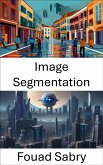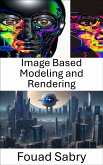What is Scale Space
Scale-space theory is a framework for multi-scale signal representation developed by the computer vision, image processing and signal processing communities with complementary motivations from physics and biological vision. It is a formal theory for handling image structures at different scales, by representing an image as a one-parameter family of smoothed images, the scale-space representation, parametrized by the size of the smoothing kernel used for suppressing fine-scale structures. The parameter in this family is referred to as the scale parameter, with the interpretation that image structures of spatial size smaller than about have largely been smoothed away in the scale-space level at scale .
How you will benefit
(I) Insights, and validations about the following topics:
Chapter 1: Scale Space
Chapter 2: Edge detection
Chapter 3: Gaussian blur
Chapter 4: Difference of Gaussians
Chapter 5: Scale-invariant feature transform
Chapter 6: Multi-scale approaches
Chapter 7: Structure tensor
Chapter 8: Pyramid (image processing)
Chapter 9: Anisotropic diffusion
Chapter 10: Gabor filter
(II) Answering the public top questions about scale space.
(III) Real world examples for the usage of scale space in many fields.
Who this book is for
Professionals, undergraduate and graduate students, enthusiasts, hobbyists, and those who want to go beyond basic knowledge or information for any kind of Scale Space.
Scale-space theory is a framework for multi-scale signal representation developed by the computer vision, image processing and signal processing communities with complementary motivations from physics and biological vision. It is a formal theory for handling image structures at different scales, by representing an image as a one-parameter family of smoothed images, the scale-space representation, parametrized by the size of the smoothing kernel used for suppressing fine-scale structures. The parameter in this family is referred to as the scale parameter, with the interpretation that image structures of spatial size smaller than about have largely been smoothed away in the scale-space level at scale .
How you will benefit
(I) Insights, and validations about the following topics:
Chapter 1: Scale Space
Chapter 2: Edge detection
Chapter 3: Gaussian blur
Chapter 4: Difference of Gaussians
Chapter 5: Scale-invariant feature transform
Chapter 6: Multi-scale approaches
Chapter 7: Structure tensor
Chapter 8: Pyramid (image processing)
Chapter 9: Anisotropic diffusion
Chapter 10: Gabor filter
(II) Answering the public top questions about scale space.
(III) Real world examples for the usage of scale space in many fields.
Who this book is for
Professionals, undergraduate and graduate students, enthusiasts, hobbyists, and those who want to go beyond basic knowledge or information for any kind of Scale Space.
Dieser Download kann aus rechtlichen Gründen nur mit Rechnungsadresse in A, B, BG, CY, CZ, D, DK, EW, E, FIN, F, GR, H, IRL, I, LT, L, LR, M, NL, PL, P, R, S, SLO, SK ausgeliefert werden.









